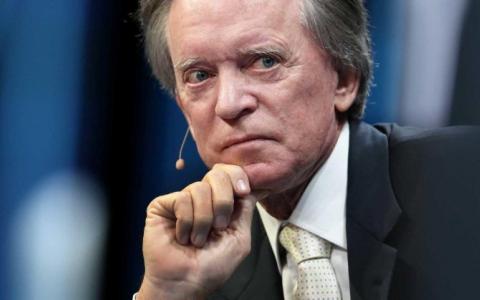
(Money Week) “How long can markets (and economies) breathe in an oxygen-less interest rate environment?” Bill Gross – the billionaire co-founder of giant asset manager Pimco, who was once known as the “bond king” – retired from his final berth at Janus Henderson group earlier this year. But he’s still keeping a close eye on markets. In his first investment outlook letter since his retirement, he worries about the ill-effects of ever-lower interest rates.
“It is obvious to me,” argues Gross, “that asset markets have benefited tremendously” from the current monetary environment. He reckons that “since 2009, perhaps one quarter of the 200% rise in the US market” is down to the collapse in interest rates over the same period.
The problem is, this can’t continue forever, says Gross. Central bankers – including the Bank of England deputy governor Sir Jon Cunliffe – are starting to raise the alarm about negative rates, and their ill effects on small savers, banks, insurers and pension funds. In short, “central banks have run out of pizazz”. With monetary policy reaching the end of the line, it’s hard to see the equity bull market being sustained “in the absence of substantial fiscal stimulation” (in other words, extra government spending rather than even lower rates).
Investors should prepare for “slow economic growth globally”, as well as “an end to double-digit market price gains”. What does that mean for your money? “High-yielding, secure-dividend stocks are what an astute investor should begin to own,” says Gross.
He is, however, still active in the markets and appeared on CNBC to talk about his investments. Gross once had the ability to move the bond markets by talking, so he's definitely an interesting guy to listen to.
Gross opined that the interest rate play for the world is gone. There are no more interest rates to be lowered by central banks. Logically, the fiscal stimulus has to take over because monetary policy is exhausted. In the current environment, Gross shares three stock ideas he likes:
Annaly Capital
Annaly Capital Management Inc. is a mortgage real estate investment trust. It is about 5 to 6 times levered. It is dependent on the spread between the two- and the 10-year Treasury. It doesn't do well in an inverted yield curve environment, which we're just coming out of. Now the spread has widened again. The yield on Annaly Capital is about 12%.
If the Federal Reserve continues with its “new baby QE,” that should widen the yield curve and should be good for banks and organizations like Annaly Capital.
Yield curve flattening is very risky for the financial sector. From there, it spreads into the rest of the market. It is interesting that Gross words it this way. Very often, we hear people talk about the yield curve as a predictor or signal of a pending recession. Gross seems to view it as an "active contributor" to a recession. Baby quantitative easing will not push up all stocks. Gross doesn't seem to expect much of it.
Invesco
Invesco Ltd. is an investment management company. Gross doesn't say, but this whole sector is trading at depressed valuations. If you look at the data from GuruFocus in the table below, you can clearly see how financial services is among the sectors that have the least demanding valuation in the S&P 500 (SPY).
Invesco trades at a price-earnings ratio of 6. The company sports a 7.5% yield. The sector is trading at these valuations as active management is under attack. Passive funds that charge zero or even negative fees are taking flight.
However, Gross likes that Invesco has a lot of closed-end funds out there. Closed-end funds are theoretically perpetual vehicles that tend to charge high fees. It is one of the most attractive asset types to have under management. Some even charge performance fees as well.
Allergan
His final pick is Allergan PLC, which is in the process of being acquired by AbbVie in a cash-and-stock deal. There is still a good 7% to 8% spread to the consideration. The spread is currently 7%, as Gross mentioned, but the expected value is likely a bit higher because it could close in the first quarter of 2020. The annualized spread (not accounting for odds of deal failure) is significantly higher.
At the same time, there are risks involved with this deal. AbbVie backed out of a big deal previously with Shire (this had to do with a tax inversion that was under siege by the government). China could withhold regulatory approval. The truth is, this is a big factor in a lot of deals going on currently. The Chinese merger and acquisitions regulator, Mofcom, has a very wide range of deals it considers to fall under its jurisdiction. It is casting a much wider net compared to European Union or U.S. regulatory bodies.



